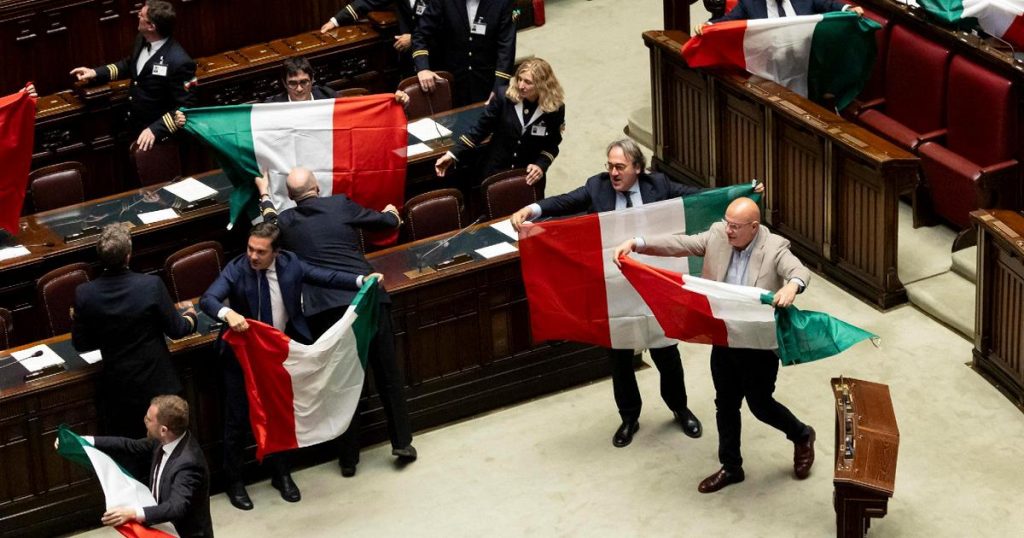Brussels is sounding the alarm over the recent approval of the Calderoli bill on differentiated autonomy in Italy. The European Commission warns that devolving additional powers to Italian regions poses risks to the country’s cohesion and public finances. In particular, the Commission is concerned about the levels of essential services that must be guaranteed uniformly across the entire national territory, as they only ensure minimum levels of services and do not cover all sectors. This could lead to increased regional disparities that already exist between the north and the south, as well as between urban and peripheral areas.
Opposition parties are seizing on the concerns raised by the European Commission, especially regarding the essential services levels. They are organizing to gather 500,000 signatures by September 30 in order to trigger a referendum to repeal what they see as a divisive reform. Former Prime Minister Matteo Renzi has likened the potential referendum to a tennis match, where if the government loses, it could be ousted. There is also the possibility that five regional councils, where the center-left currently holds the majority, could request the referendum. Some discontent has even been expressed in southern regions by members of the center-right. This division is causing cracks within the majority coalition, with concerns raised about the impact of autonomy and primacy on regional unity.
In Calabria, there has been disagreement within the center-right coalition, with Forza Italia not voting in favor of the reform and the regional president criticizing the accelerated process as a potential electoral boomerang. While there may be differing opinions within the party, efforts are being made to assure voters in the south that their interests are being protected through amendments and guarantees. Despite the internal disputes, former President of the European Parliament Antonio Tajani sees the differentiated autonomy as a step in the right direction and believes that legitimate concerns in the south will be addressed through government initiatives focusing on the region. As the political landscape continues to evolve, divisions within the coalition and opposition alliances are becoming more apparent.
Minister Nello Musumeci is attempting to allay fears by emphasizing the need for southern regions to compete with the north while acknowledging their different objectives. He argues that the autonomy bill does not pose a threat to the unity of Italy, as it places responsibility on the leadership of both northern and southern regions. Musumeci voted in favor of the bill in the Senate, stressing the importance of releasing the southern regions from the narrative of being a burden on the country. As mayoral elections take place in several large southern cities, including Bari and Avellino, Musumeci’s reassurances and the government’s actions will be put to the test in determining the impact of differentiated autonomy on regional dynamics. As political tensions rise and regional interests come to the fore, the future of Italy’s unity and cohesion hangs in the balance.


